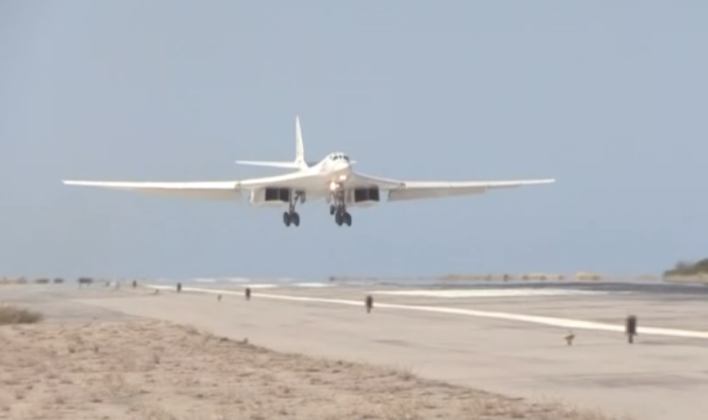Amid high tensions between Russia and NATO over multiple issues, chief among the possibility of Ukraine’s absorption into the western alliance, Russia’s Deputy Foreign Minister Sergei Ryabkov has indicated the possibility that Moscow could open new military facilities in Cuba and Venezuela. “I don’t want to confirm anything, I won’t rule anything out either,” he stated, stressing that such possibilities depended on Washington’s response to Russia’s request for security guarantees among which were that NATO should cease to expand. NATO Secretary-General Jens Stoltenberg has strongly ruled out the possibility that the alliance would limit its membership, indicating that Ukraine and possibly even Georgia could become members. This in turn would facilitate the deployment of U.S. and other western assets, including possibly nuclear weapons, in very close proximity to Russian territory. With NATO forces already vastly outnumbering and outspending Russian ones, this has long been seen as unacceptable for the country’s security situation. Russia sources have long claimed that the withdrawal of Soviet forces from Eastern Europe was based on promises that NATO would not expand east of Germany, with the bloc’s subsequent growth to now encompass almost all of Eastern Europe, including not only the former Warsaw Pact but also parts of former Soviet territory itself in the Baltics, to be a violation of these terms and a threat. Stoltenberg notably refuted during recent tensions, this claiming NATO never pledged to stop expanding and would never pledge to do so.

The Soviet Union previously had a sizeable military presence in Cuba, which for much of the Cold War was the early country in the Western Hemisphere outside the western sphere of influence. Russia closed its military facilities in Cuba, as well as in Vietnam, shortly after the Soviet collapse, but has recently sought to expand its military presence outside the former Soviet Union with new bases in Syria and possibly in Sudan. The possibility of re-establishing bases in Cuba was previously raised in 2017. During periods of high tensions between Venezuela and the United States, including in late 2018 when the possibility of an American attack on Caracas was widely being raised, Russia on multiple occasions deployed military assets to the country including Tu-160 intercontinental range strategic bombers. In December 2018 the possibility was raised for permanent facilities hosting Russian bombers in the country, possibly relying on shorter ranged strike aircraft such as the Su-34 or Tu-22M2M which are still more than capable of striking targets across much of the United States mainland from bases in Venezuela. Russian forces are currently present in Venezuela for training purposes, with private Russian military contractors with links to the Kremlin reported to also be in the country to provide security at the request of the Venezuelan government.

In Cuba surveillance facilities of unknown origin have been speculated to be either Russian or Chinese, and the possibility of a restoration of Russian facilities in the country has been raised multiple times. Unlike Venezuela, which is considered to have the most formidable aerial warfare capabilities in Latin America by far, Cuba has a very small defence budget and has made no major acquisitions of new armaments since the end of the Cold War when Soviet aid was terminated. The threat of a U.S. attack on the country has also been more limited however, which some analysts speculate is in part likely due to a lack of oil resources. Nevertheless July 2021 saw an escalation of tensions between Havana and Washington unprecedented in decades, a sharp escalation in American economic sanctions, and widespread calls in the U.S. for military action to topple the Cuban government by force.
A Russian presence in Cuba would place more pressure on the United States and open up the possibility of a fast transfer of nuclear weapons to Cuban territory which could threaten the American mainland. Unlike during the Cuban Missile Crisis, where nuclear weapons required several months to station, the deployment of nuclear armed combat aircraft could potentially be arranged within hours should the right facilities be in place. Building facilities in Latin America would open up the possibility of rapid escalation to deployment of nuclear arms, and thus could serve as a deterrent to similar escalation by NATO using Ukraine or Georgia. Other options for retaliation include escalated support for smaller U.S. adversaries such as Iran and North Korea, and permitting the sale of high end armaments which in Iran’s case Moscow previously refrained from doing reportedly due to Western pressure.
